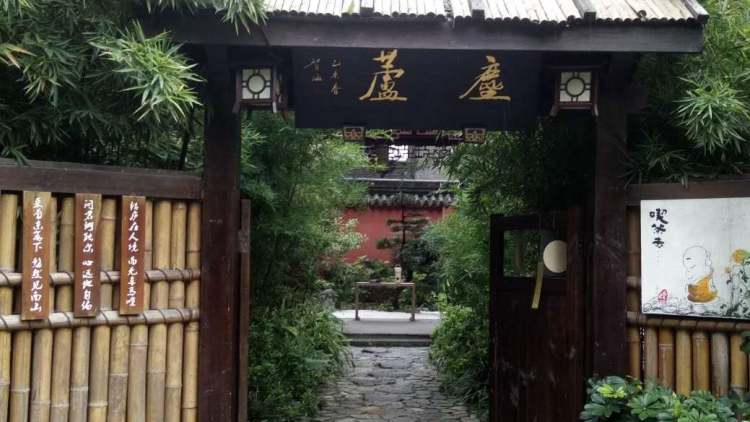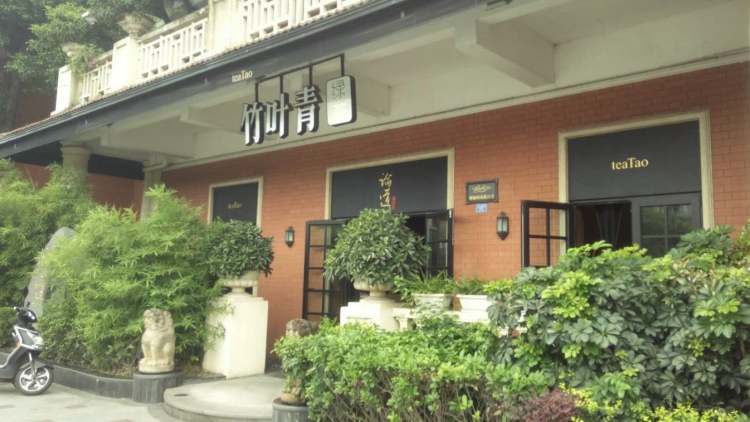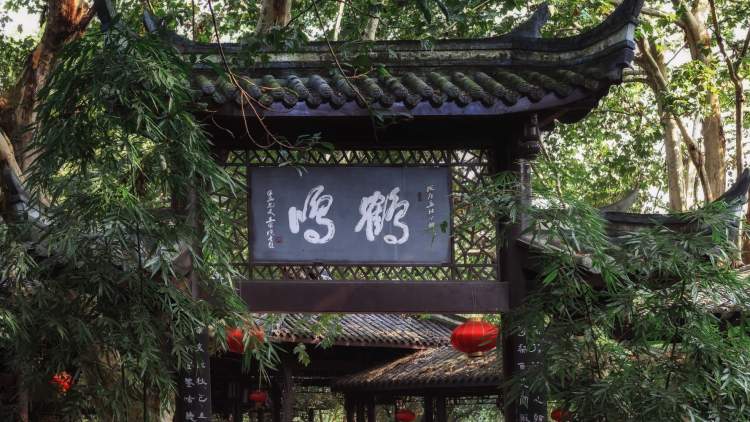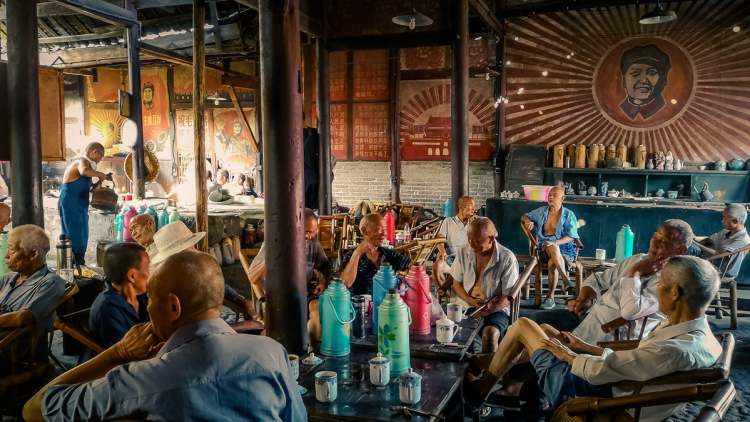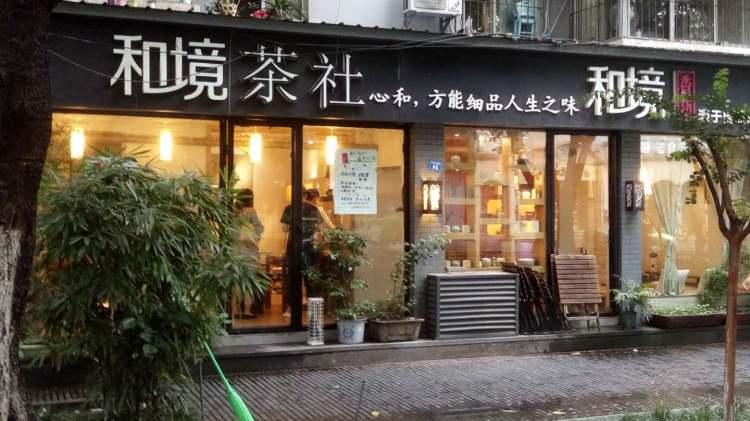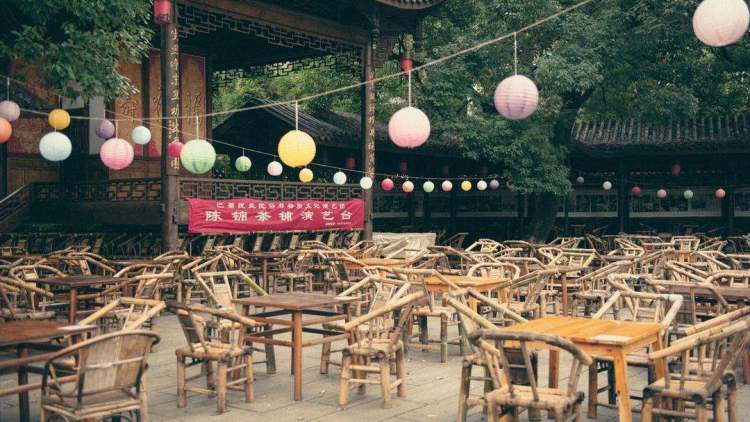Like Daci Temple, Wenshu Monastery is also a famous Buddhist temple with a long history in Chengdu, and it is crowded with pilgrims. The huge flow of people makes the area full of teahouses, and the dust house is one of the most high-quality. The dust house is not located in the Wenshu Monastery, but is located in the incense garden near it, the entrance is relatively hidden, and it is not easy for new customers to find, and the customers who come here to drink tea are mostly regular customers. Chenlu is one of the few teahouses in Chengdu that makes its own tea, and its strict control over the production and its elegant and classical decoration have captured many tea fans.
Chengdu teahouse is dominated by baba tea, with open-air tea, gaiwan tea, and bamboo chairs as the standard. This kind of teahouse does not pay attention to water and tea, and is mainly a place for tea guests to rest and chat and spend time. In recent years, some tea drinkers have become more and more concerned about the quality of tea, hoping to savor the tea in a quiet place. Although the overall level of Chengdu's boutique teahouses is inferior to that of Suzhou and Hangzhou teahouses, there is no shortage of high-quality teahouses, and Chenlu is one of them.
The tea used in the dust house is handmade by the tea master, and the common green tea, black tea, pu'er, white tea, and oolong tea are all available. The advantage of handmade tea is that the tea master can flexibly grasp the heat, stirring time, kneading strength, etc., and the accuracy is higher than that of the machine. However, the mechanism tea making process has been standardized, less affected by the outside world, and the production is relatively stable and can be mass-produced. The quality of handmade tea is directly controlled by the level of the tea master, which is greatly affected by temperature and weather, and the quality of the finished product is uneven, and it cannot be mass-produced. In general, machine-made tea is more advantageous, and hand-made tea is rarer. The tea master of Chenlu has good skills, but there is also the problem of high and low tea quality.
In each season, Chenlu will launch two solar term teas and one special tea, such as in summer, Chenlu focuses on green tea, oolong tea and Cuihua white tea. In the hot summer, it is easy to sweat and lose water, while green tea and oolong tea are refreshing and sweet, which can quench thirst, and are very suitable for drinking in the hot summer. White tea is a micro-fermented tea, after picking, it is not finished or rolled, only processed after sun drying or simmering, which is milder than other teas, with a sweet taste, and is suitable for drinking in summer.
The door plaque of the dust house is printed with the traditional Chinese character "塵廬", and the wall surrounded by bamboo rows is hung with several wooden boards engraved with poems, without too much decoration, simple and elegant. A straight gravel path leads to the courtyard, which is surrounded by flowers and bamboo forests, and the stone table in the center is equipped with unique potted plants, tea stoves and ancient books.
There are three floors in the dust house, and the decoration is elegant, but it does not lose the taste of simplicity. The tea garden is designed in Chinese style, decorated with Buddha statues and poems, simple and elegant. Although it is decorated in dark colors, the dust house has good lighting, and the interior is transparent and bright. On the first floor, there are various tea sets and small pots of tea made by the dust, and two wooden tables for customers to drink a single cup of tea. On the second floor, there are several compartments where customers can choose between gaiwan tea or gongfu tea. Outside the compartment is a guzheng where a luthier comes to play and perform.
On the third floor, there is a private room area for Kung Fu, which is divided into two types, one is a tea seat that sits cross-legged, and the other is a recessed compartment under the tea table, where customers can sit with their legs straight. Private rooms can accommodate up to 8 people, with 4 people available. All private rooms only charge for tea seats, starting from 100 yuan per person. If customers need a more spacious and more secluded private room, the dust house also provides it. This business room can accommodate 15 people, is a fully enclosed single room, mostly used for tea culture lectures and business negotiations, the price is 2000 yuan for 4 hours.
In order to ensure a quiet tea tasting environment, children under the age of 12 are not allowed to be accommodated, and tea guests are asked to control their conversations. Therefore, even if it is full, the dust house is quite quiet, which is the opposite of the noisy baba tea. Kung Fu tea is brewed by the tea customer himself, and if the customer can't, the staff will give a demonstration at no extra charge and no tea art performance. The clerks in the dusty house are all wearing plain Zen clothes and have a good service attitude.
It is also a teahouse that focuses on Zen, and the Zen teahouse of Daci Temple has less historical charm and more poetry. Compared with the popular crane song and the primitive and rugged old teahouse in Pengzhen, the dust house is much more exquisite, quiet and clean.



